#Pacino Saturday
Text

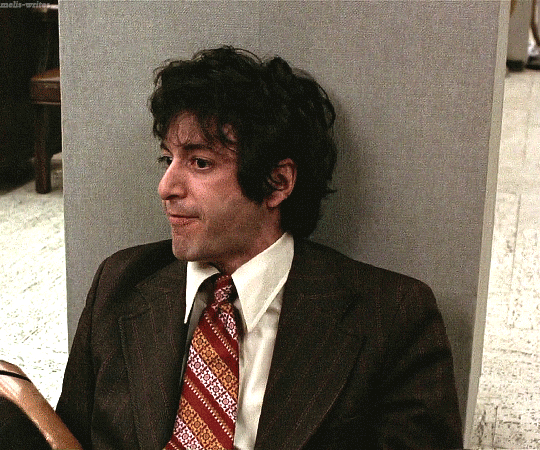

DOG DAY AFTERNOON (1975) dir. Sidney Lumet.
#melisgifs#moviegifs#movieedit#dailyflicks#film#movies#entertainblr#filmedit#filmgifs#filmtv#fyeahmovies#tvandfilmdaily#tvandfilmgifs#cinemapix#cinematv#dog day afternoon#al pacino#pacino saturday#sonny wortzig#sonny wortzik#sidney lumet#1970s#70s
540 notes
·
View notes
Text


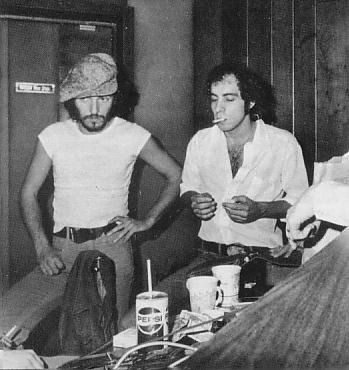
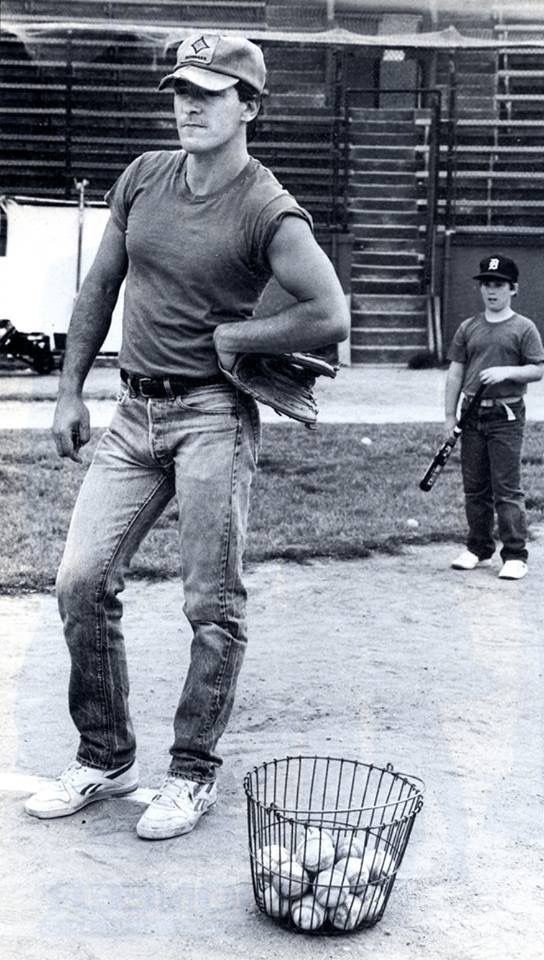
So while Al Pacino's right hip is his sassy gay side in the case of Bruce Springsteen it is his left side thus proving that these two are mirror twins separated at birth with one being raised in New York and the other in New Jersey in this essay I will...
#bruce springsteen#al pacino#bruce springsteen and the e street band#al pacman#stevie van zandt#arthur kirkland#...and justice for all 1979#...and justice for all#happy pacino Saturday#pacino saturday#gay ass hand on hip#sassy hand on hip#Bruce and al are related and you cannot convince me otherwise#dog day afternoon#and aint no one gayer or sadder than sonny#sonny wortzik
145 notes
·
View notes
Text
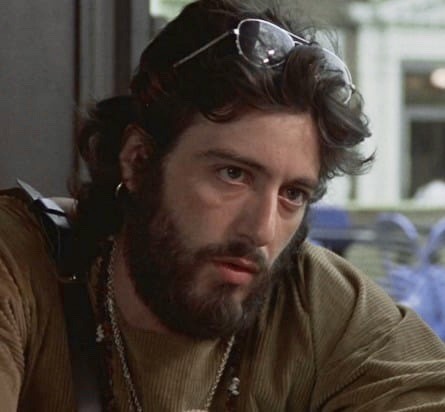

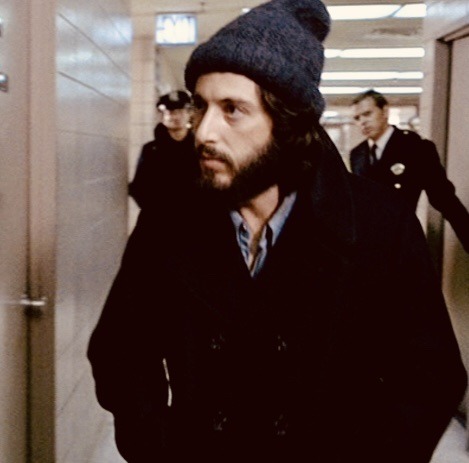

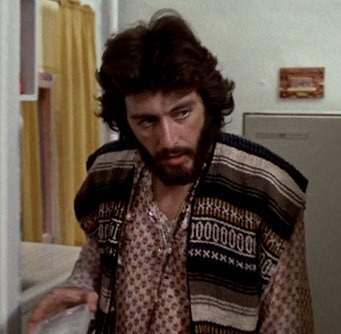
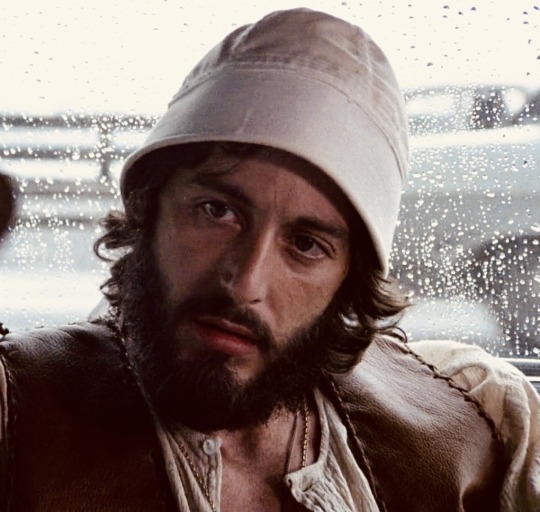
happy pacino saturday! here’s my husband 🖤
259 notes
·
View notes
Photo

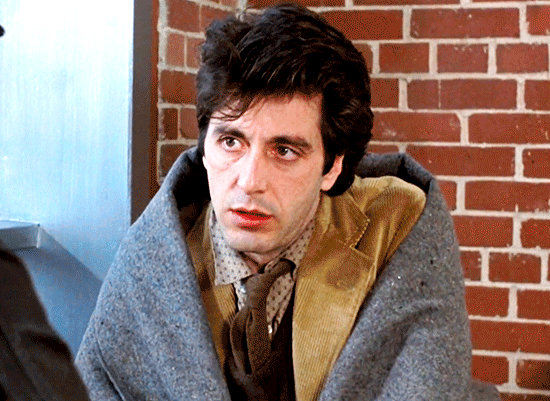

AL PACINO as Arthur Kirkland
...and justice for all dir. Norman Jewison
#al pacino#moviegifs#fyeahmotionpictures#fyeahmovies#filmedit#dailyfilmsource#pacino saturday#hi everybody!#😳 hope I'm welcome
219 notes
·
View notes
Text
70s al pacino is my girlfriend
115 notes
·
View notes
Text
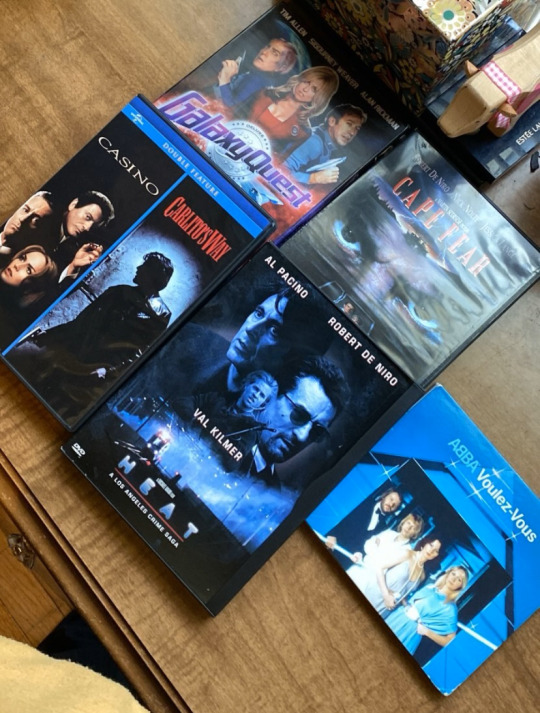
LOTS OF BOBBY AND AL FINDS TODAY <333 + gay ppl music + campy space movie
#showy#I’m soo happy I have more Bobby movies now :)#pacino saturday#had to pass up iwtv and Batman returns cuz my parents don’t know I watched them :(
14 notes
·
View notes
Text
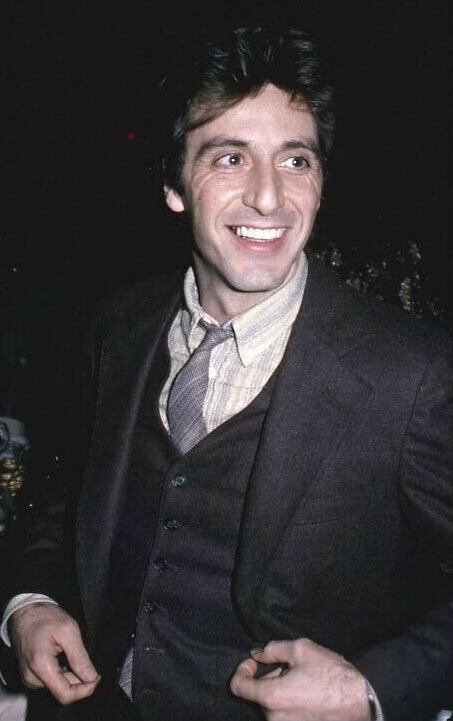
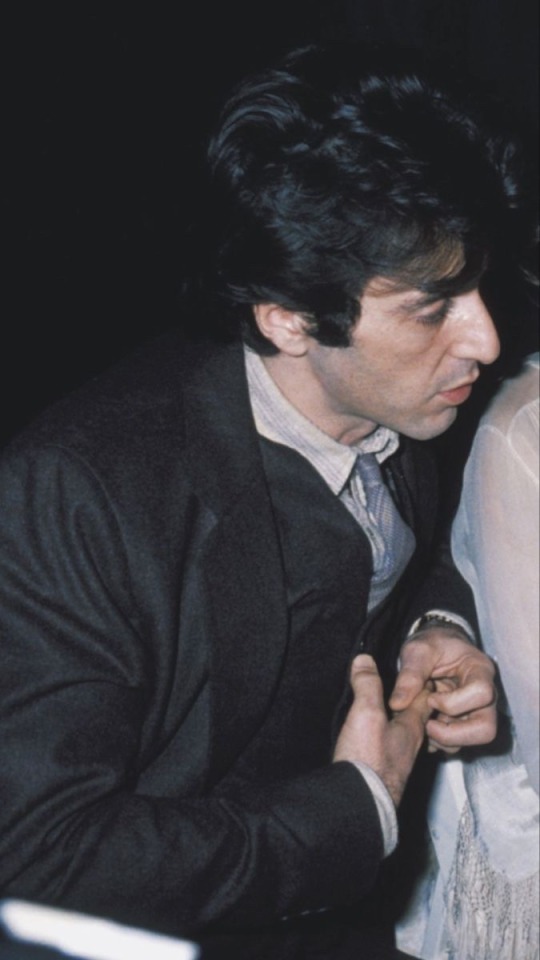

happy saturday✨🤎🌼
132 notes
·
View notes
Text

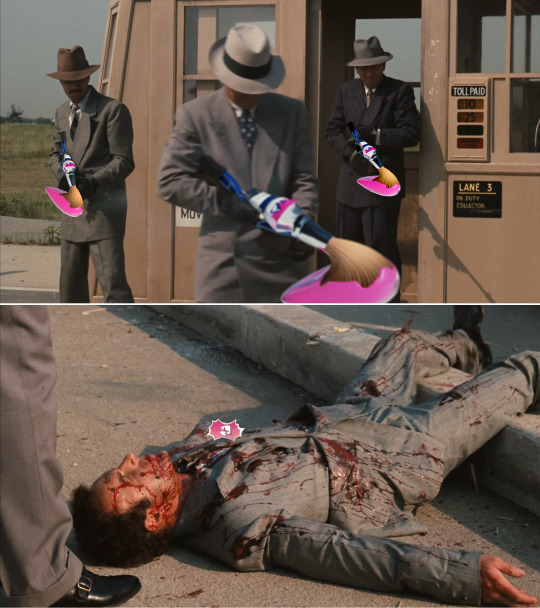

I'm at the pacino saturday, I'm at the splatoon 3 : splatfest world premiere, I'm at the combination pacino saturday/splatfest world premiere.
#idk man i can't sleep or be productive#the godfather#pacino saturday#splatoon 3#splatfest#splat 3 hype#it's not even saturday anymore here it's 2am
55 notes
·
View notes
Text
Misappropriating Michael Corleone: toxic masculinity in The Godfather
In celebration of this glorious Pacino Saturday, I bring you this essay commission I wrote earlier this year about toxic masculinity in The Godfather with something the commissioning editor didn't get - GIFs from the wonderful Godfather / Pacino community! Enjoy.

The final shot of Francis Ford Coppola’s The Godfather Part II is probably my all-time favourite ending to a film. Dressed for a chilly autumn, Michael Corleone – played like one of Shakespeare’s tragic princes by Al Pacino – sits alone, wearing the ring from his long-jettisoned marriage even as his hair fades to grey, pondering the question he will be pondering for the rest of his life: was it worth it? Cinema’s most famous eyes, haunted by a thousand ghosts, stare out over a kingdom of ashes. The last of the Corleone family’s enemies is dead, but there is no Corleone family left to share in Michael’s victory. He has won – and lost everything in the process.
So I can’t get my head around the misappropriation of Michael Corleone as some sort of sigma male fantasy figurehead. How can you walk away from that final disarming fade-to-black and think, in all sincerity, now there’s a man content with his choices. I’d like to be just like him.
The Godfather trilogy is a story about how a young man with everything becomes an old man with nothing. Coppola intended it to be, as has often been said before, an allegory of American capitalism – all actions taken in pursuit of money and power have victims. To me, it’s also a story about toxic masculinity.
The phrase ‘toxic masculinity’ didn’t exist when Francis Ford Coppola made The Godfather, but it did exist when I studied the film at university more than 40 years later. Like any cinematically-minded eighteen year old who studies The Godfather, I was fascinated by it. In particular, I was interested in how the war hero at his sister’s wedding becomes the gangster who murders the man she married. What force on Earth is powerful enough to destroy a man’s soul the way Michael Corleone’s is destroyed by the end of Part II?
All three of Vito Corleone’s sons are trapped in his shadow. Their choices are dictated by a well-worn rulebook of how men should behave. By fighting heroically for his country and courting a respectable outsider (Diane Keaton’s Kay), Michael attempts to rewrite this rulebook. Initially, he is interested in performing masculinity on his own – and, arguably, lawful society’s – terms.
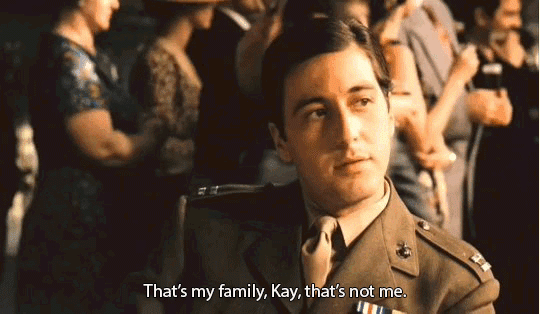
But in the world of The Godfather, wars aren’t won by playing by society’s rules. Vito Corleone represents the pinnacle of a different kind of masculinity, one that, though it rejects the principles of law, is nonetheless built on American values: ambition, individualism, strength of mind and body, power. Michael’s campaign to ‘be his own man’ is superficial from the start. Although he wants nothing to do with the family business, he doesn’t speak out against it. He is unbothered by the story he tells Kay, of a gun, a contract, and an offer impossible to refuse. Michael is so immersed in the world into which he was born that it has become impossible for him to escape. And, I suspect, he wouldn’t escape it if he could. Michael Corleone loves his father, and all along, there is a part of him that admires the toxic ideal Vito represents.
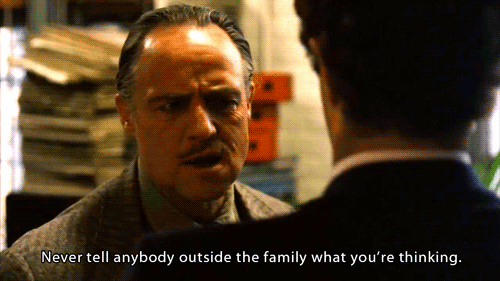
So what makes the Vito Corleone brand of masculinity so ruinous? As portrayed by two of our all-time greatest actors in a pair of stunningly charismatic performances, Vito is ruthless but fair, demanding but loyal, marble-hard to his enemies and kitten-soft to his friends. He is protector, provider, patriarch. His logic is unchallenged, his judgement unquestioned. He is everything a man in his world should be. Anything less would be a failure of manhood. Vito believes it is sloppy to let on how you’re feeling (“Never tell anybody outside the family what you’re thinking”), unmanly to show emotions (“You can act like a man!”, roared at his mopey godson, Jonny Fontaine), weak to let your guard down (“Women and children can afford to be careless but not men”). Although none of them are capable of living up to the ideal established by Vito, the Corleone boys are expected to live by this hard-and-fast guide to masculinity. One by one, they die by it.
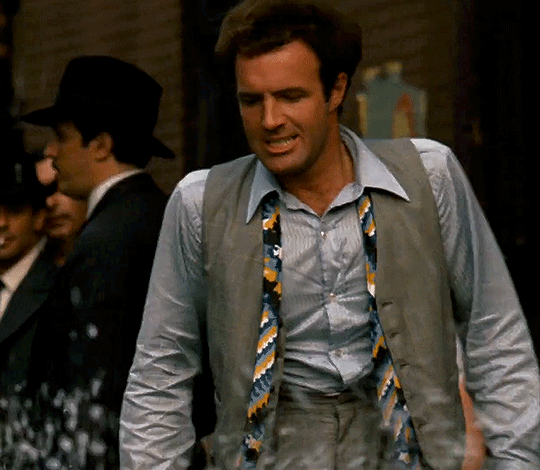
Toxic masculinity manifests differently in each of Vito Corleone’s three sons, and it destroys each of them in a different way. Broad-shouldered in his wifebeater, James Caan’s Sonny is a textbook man’s man, and he acts as he believes a man should. A rough-and-tumble action-man, Sonny is a dominant hand at the helm of the good ship Corleone while his father is in hospital. He rises to the challenge Vito has set for him. He becomes the protector, the provider, the patriarch. When it comes to defending the family, he is as ruthless as his father has taught him to be. And it is that instinct to protect, that assumption of a power inherited, those toxic learned behaviours, that get him killed on the causeway, falling for a trap that would never have fooled his father.

Sliding down to the other end of the spectrum, John Cazale’s Fredo is about as far from a masculine stereotype as you can get. But he isn’t free from the burden of its expectations. It is precisely Fredo’s exclusion from the Corleone ideal of masculinity that traps him in its toxic web. From the moment he is born sickly, Fredo is told that he is weak and stupid and unworthy of the Corleone name. His mother tells him that he must’ve been left on the doorstep by gypsies, so far removed is Fredo from the masculine ideal represented by his father. But he isn’t weak and he isn’t stupid and he does deserve to be a part of this family that has left him behind. So, fighting for some ounce of the respect that he, as a man in the Corleone mould, is owed, Fredo fights back. He is killed for his masculine pride, for his one attempt to be as ruthless as his father wished him to be.

Of all Vito Corleone’s sons, Michael is the one who takes his father’s lessons most to heart. He’s also their most tragic victim. He recalls his father’s advice (“keep your friends close but your enemies closer”), repurposes his words (“I’ll make him an offer he can’t refuse”), and abides by his golden rules of masculinity: never tell anyone what you’re thinking, never reveal your emotions, and don’t be careless. He is a ready-made don-in-waiting, rotten to the core with inherited notions of toxic masculinity. His destiny in inescapable.
In our very first glimpse of him, Michael is recently returned from war. He has been decorated for bravery (in a deleted scene, Vito mocks his medals as “Christmas ribbons”). We do not know what Michael saw and did in the war, but we know it know it made him a hero. So it can’t have been anything good. He is forced to surrender his civilian life in defence of his family. While he’s in hiding for the murder of his father’s enemies, his brother is killed. His lovely young wife is blown to bits by a car bomb that was meant for him. His father dies. He is betrayed by men who have known him since he was a baby. Yet for all this grief and trauma, we never see him mourn. There is barely one scene in The Godfather or its first sequel in which Michael expresses a thought or feeling.

Too often, I see this absence of expression misconstrued as an absence of emotion. To me, Michael Corleone is not a villain. He is not a stone-hearted sociopath. In fact, he’s nothing but emotion. He just has no outlets for it. He has grown up in an environment where sharing feelings and expressing emotions is seen as weakness and foolishness, something to be avoided by any self-respecting Corleone man. Without this knowledge of self-expression, or anyone he trusts enough to express himself to, the enormous amount of anger and pain inside Michael is left to bubble and boil over. He is unable to articulate his frustration to his wife, so he socks her in the face instead. Fredo’s murder is not the ruthless act of an uncaring monster, but the whim of a broken heart. Michael doesn’t know how to share his pain with Fredo, wouldn’t even know how to start a conversation about how much his betrayal hurts, so he responds in the only way he knows – with a permanent solution to a seemingly incurable ache. With a masculine instinct for action, not emotion. Michael ends up alone because he doesn’t know how to let anybody in. He lives in a world where to trust somebody is to make yourself weak. He lives in the world his father has made for him. In the end, it is the very repression of the emotions he has been taught to repress that destroys Michael.
So if it’s so terrible to be Michael Corleone, why do we end up with glorifying articles like this one from a 1995 edition of Esquire? Because the type of toxic masculinity he represents persisted in 1995, and it persists in 2022. People continue to misappropriate Michael because they continue to misinterpret his fate. The “exultant glimpse of male nature” offered to viewers of The Godfather continues to seduce some with an illusion of power, success, and victory. We are willing to overlook, then, the price of such exultant masculinity. Who needs the love and trust of your friends and family when you’ve got a big-ass house by Lake Tahoe and business interests worth millions?

The truth is that the masculinity some exult is the cancer at the heart of the Corleone family – and Francis Ford Coppola knows it. Mario Puzo may have named his central family “lion heart”, but Coppola is sparing with his lionisation. By enforcing his single-minded view of a masculine ideal, Vito Corleone traps his children in a self-destructive cycle of generational violence. Coppola shows us how it consumes everything – the lives of women, children, and innocent people, all secondary to the glory of a Corleone man’s victory. I’m certainly not the first to suggest that The Godfather is “not a monument to male chauvinism but a condemnation of it” (Nicholas Barber for the BBC earlier this year). But for me, Coppola’s film isn’t just about how male chauvinism pervades certain times, places, and people. For me, it’s about how the very nature of toxic masculinity, how it is created and maintained. It’s about the price of buying into that illusion. For Michael Corleone, the price is everything. And for those who misappropriate him, it’s worth it.
57 notes
·
View notes
Photo

50 notes
·
View notes
Text
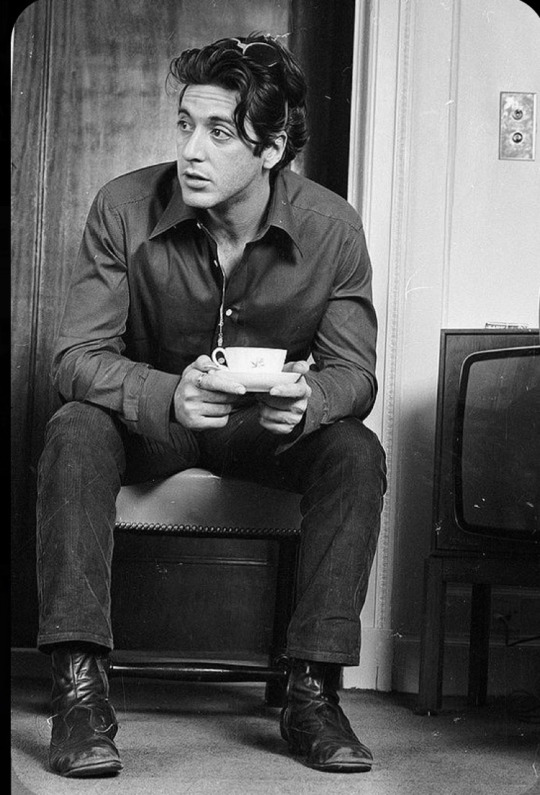
happy saturday ☺️
39 notes
·
View notes
Text
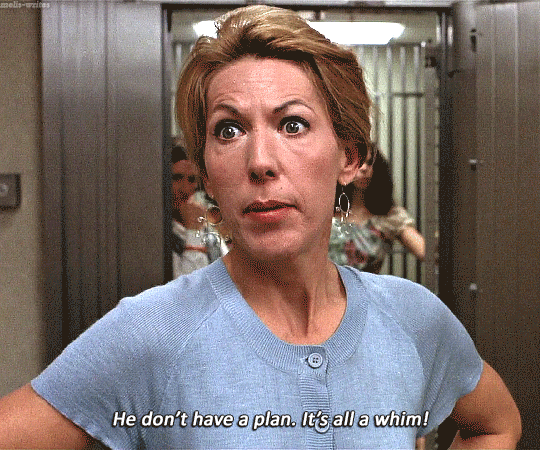

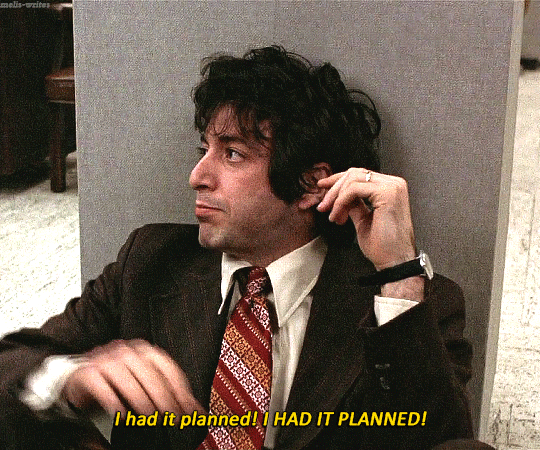
DOG DAY AFTERNOON (1975) dir. Sidney Lumet.
#melisgifs#moviegifs#movieedit#dailyflicks#film#movies#entertainblr#filmedit#filmgifs#filmtv#fyeahmovies#tvandfilmdaily#tvandfilmgifs#cinemapix#cinematv#dog day afternoon#al pacino#pacino saturday#sonny wortzig#sonny wortzik#sidney lumet#1970s#70s#penelope allen
557 notes
·
View notes
Text
The Godfather would've been much shorter if Kay said she didn't like the lasagne.
#the godfather#al pacino#alfredo james pacino#michael corleone#kay adams#diane keaton#pacino saturday#happy pacino saturday#mine
45 notes
·
View notes
Text

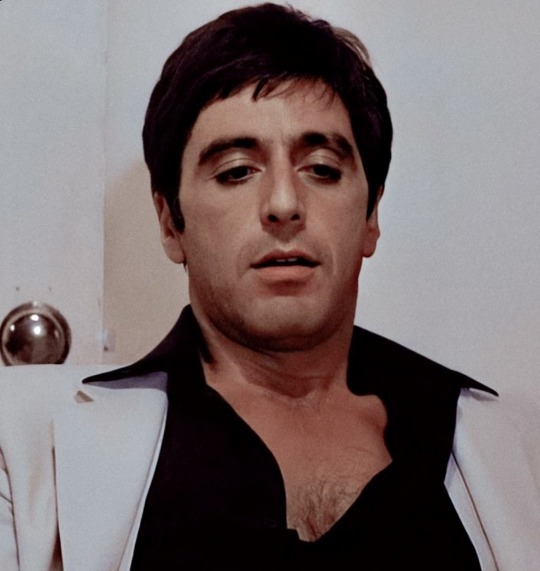
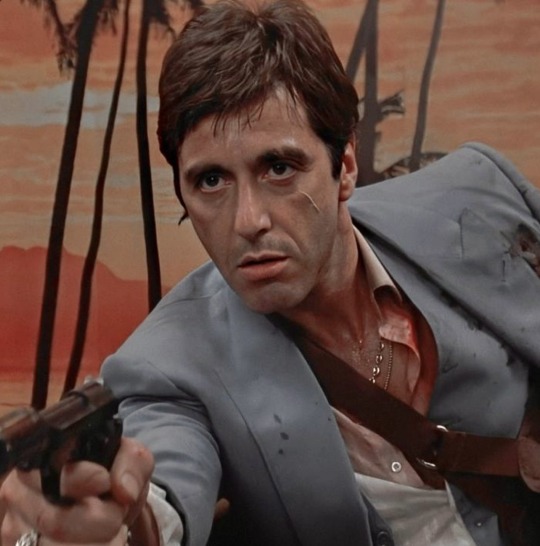
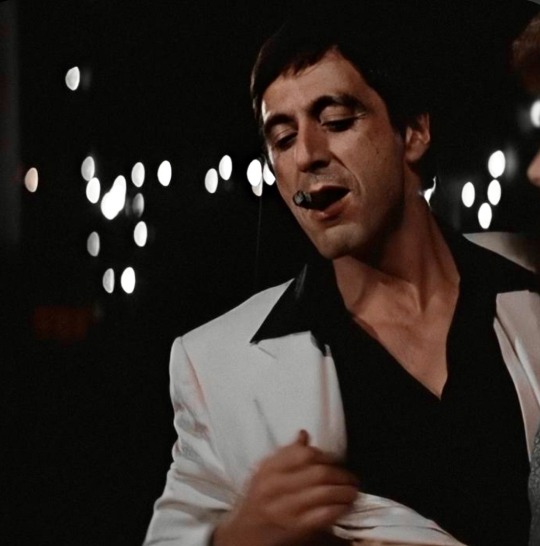
Al Pacino as Tony Montana in Scarface (1983) dir. Brian De Palma
241 notes
·
View notes
Text
Fellas, is it homophobic if my DVD player runs out of power and goes black right before the climactic airport scene in Heat??
14 notes
·
View notes
Text
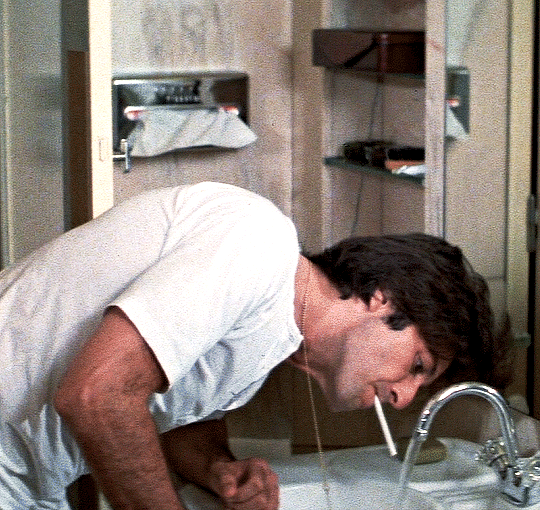

AL PACINO
in Bobby Deerfield (1977) dir Sydney Pollack
#al pacino#filmedit#fyeahmovies#dailyflicks#dailyfilmsource#motionpicturesource#pacino#filmgifs#mine#happy saturday!#bobby deerfield
768 notes
·
View notes